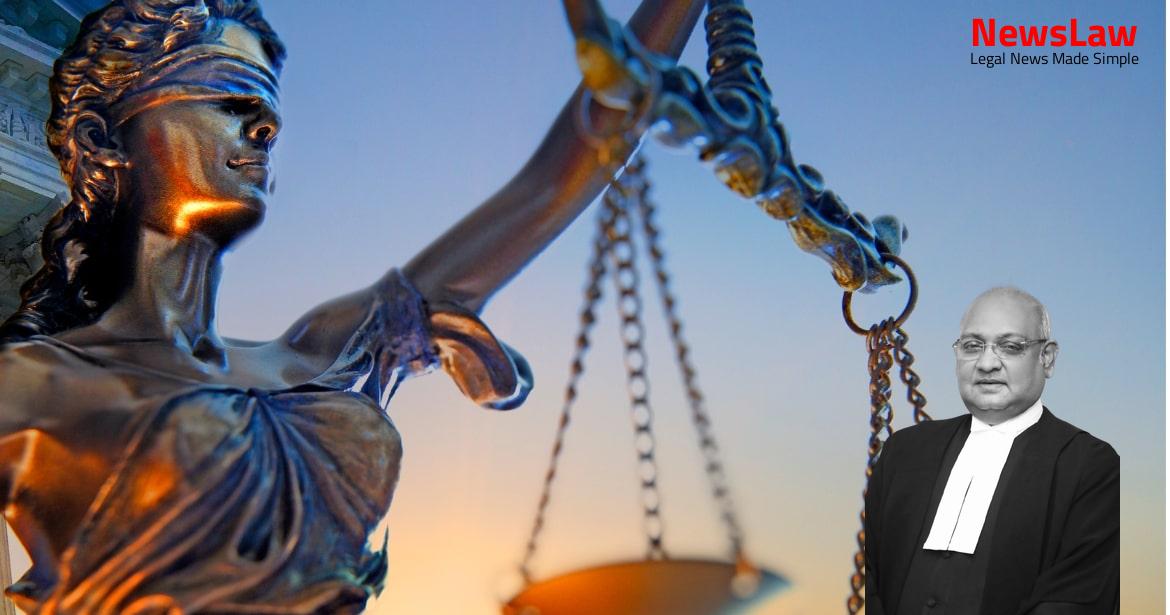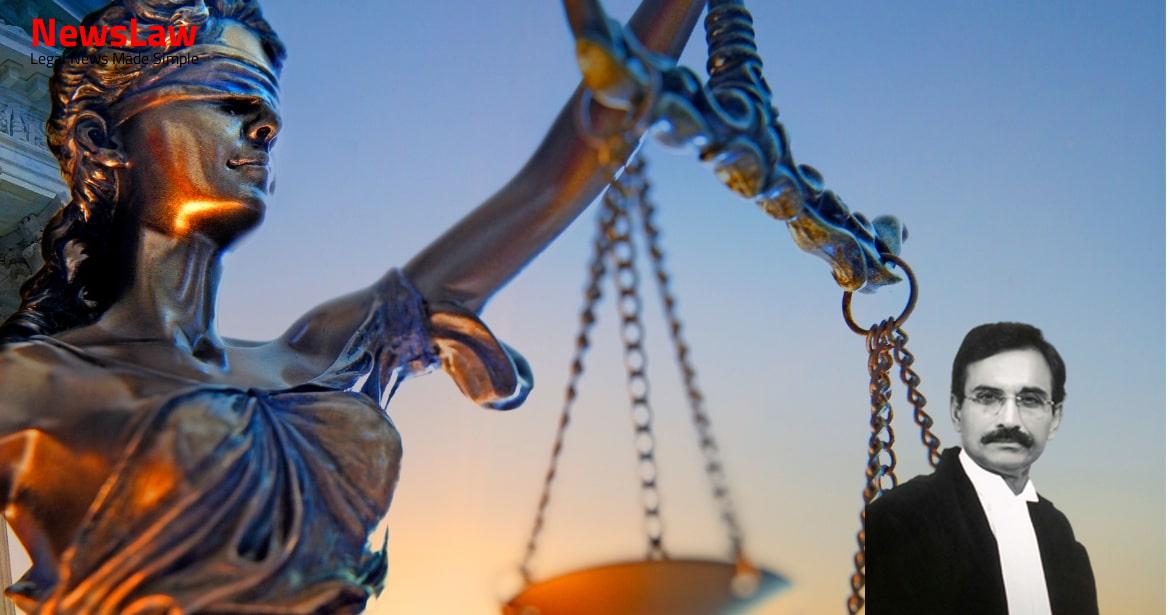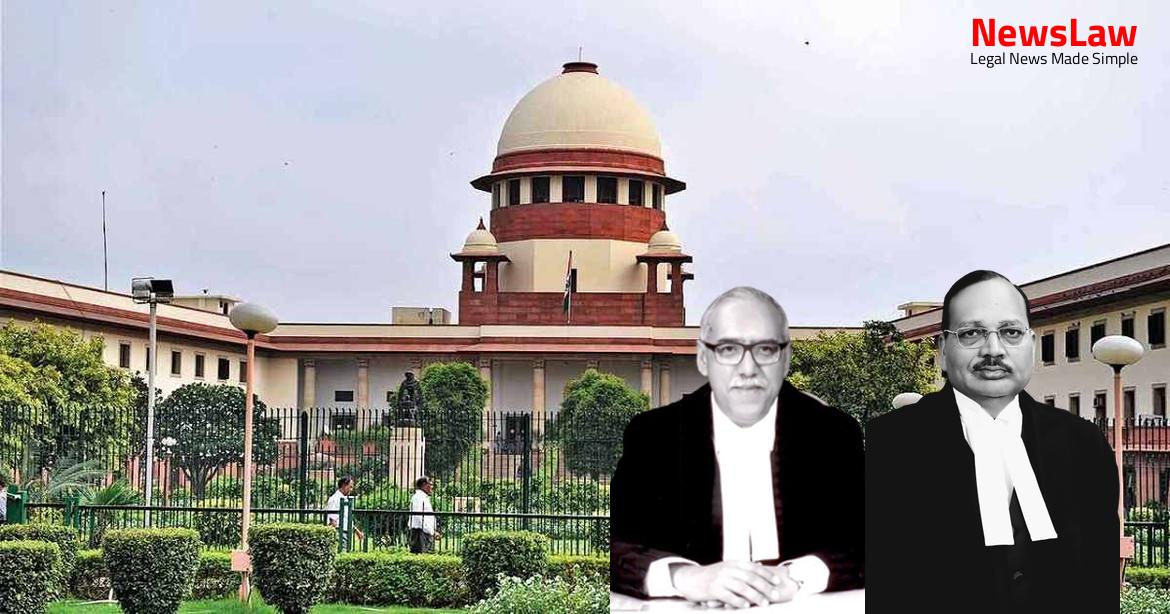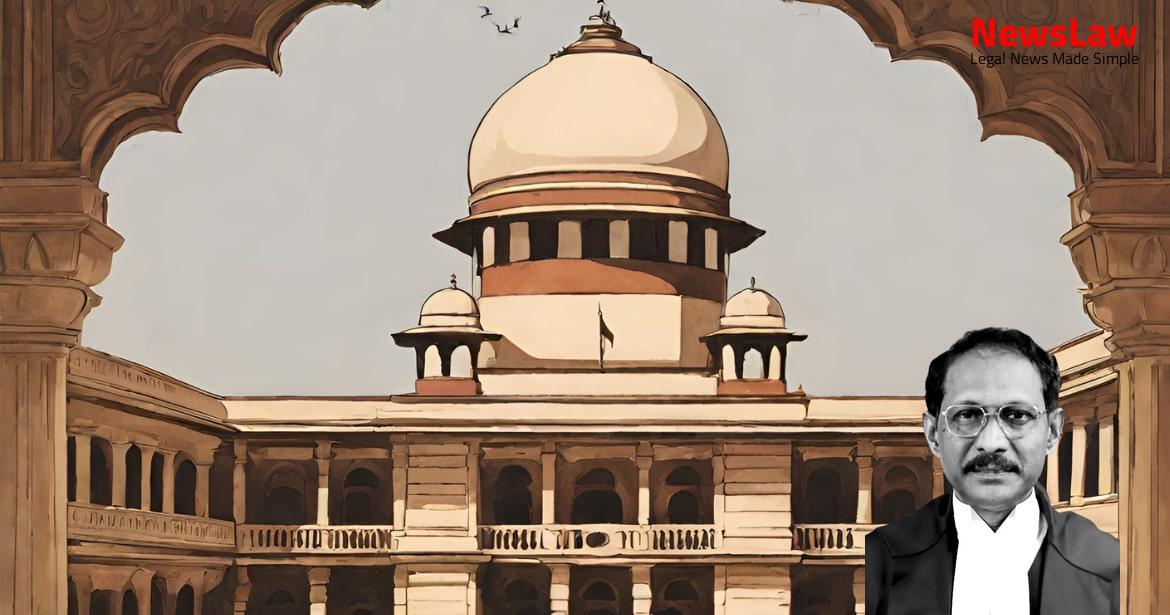Explore a detailed examination of the court’s legal analysis on tax deduction obligations related to international sports payments. The case delves deep into the application of various sections of the Income Tax Act, including 115BBA and 194E, shedding light on the complexities of tax liabilities for non-residents in the sports industry. Stay tuned to unravel the intersection of tax law and sports payments in this intriguing legal saga.
Facts
- CIT(A) determined that only 45.94% of six types of payments attracted provisions of Sec. 291(1)/194
- Payments made by PILCOM related to all matches played in the tournament
- Out of 37 matches in the World Cup Tournament, only 17 were played in India
- Percentage of payments considered as deemed income in India based on matches played in India
- Tribunal upheld CIT(A) decision on certain payments while differing on others
- High Court affirmed Tribunal’s view on Income Tax Appeal No.196 of 2000
- ITO held PILCOM liable under Sec. 201(1) for failure to deduct payments and also liable for interest under Sec. 291(1A)
- Total short deduction under Sec. 194E computed by ITO as Rs. 2,18,293,00.00
- Amount not falling within scope of tax deduction at source was ordered for deletion
- PILCOM appealed against the order passed by the ITO and the CIT(A)
- The ITAT set aside the CIT(A)’s order and referred the matter back for re-decision
- The CIT(A) re-heard the appeal and passed the appellate order on 28.12.1998
- The books of accounts of PILCOM were not completed by its Pakistani Treasurer and could not be produced before the I.T.O.
- ICC is a non-profit organization headquartered in London which manages cricket worldwide
- India, Pakistan, and Sri Lanka were selected to jointly host the 1996 World Cup Cricket Tournament
- PILCOM was formed by the cricket control boards of Pakistan, India, and Sri Lanka for the purpose of conducting the 1996 World Cup
- The CIT(A) classified the payments made by PILCOM into several categories based on purposes and recipients
- Taxes were held to be deductible at source according to Sec 115BBA and Sec 194E
- Payments were made by PILCOM to the involved countries and ICC for the tournament
- Surplus amounts in the bank account were to be divided between the cricket boards of Pakistan and India, with a lump sum to Sri Lanka
- INDICOM was appointed by BCCI for handling responsibilities for hosting World Cup matches in India
- Amounts were transferred from London accounts to co-host countries for various expenses related to the matches
- The ITO issued a notice to PILCOM for not deducting taxes from payments made
- Contentions of PILCOM were not accepted by the I.T.O.
Also Read: Legal Analysis on Arbitration Petition Limitation Period
Arguments
- Mr. Khaitan, Senior Advocate argued that the payments were for granting a privilege, not towards matches.
- The payments were made in accordance with the decision of the International Cricket Council in a meeting held in London.
- The amounts were transferred in England.
- The key question raised was whether any income accrued in India.
- Mr. Banerjee, Additional Solicitor General, argued for acceptance of the Judgment under appeal.
- He emphasized that for Section 115BBA of the Act, participation is not a crucial factor, but rather the payment being for matches held in India is key.
- The income in this case was deemed to accrue or arise in India.
- The relevant provisions of the Act, such as Sections 2(24)(ix), 5(2), 9(1), 115BBA, and 194E were cited.
Also Read: Analysis of High Courts’ Jurisdiction and Court Orders Under Article 142
Analysis
- The judgement analyzed the application of Section 195(1) of the Income Tax Act in the context of payments made to foreign cricket associations by PILCOM.
- It was highlighted that the source of income for the cricket associations should be considered based on the matches played in India, Pakistan, and Sri Lanka.
- The obligations to deduct tax at source and the liability to pay tax were distinguished.
- The analysis emphasized the importance of the phrase ‘chargeable under the provisions of the Act’ in Section 195(1).
- The judgement clarified the connection between income chargeability and the provisions of the Act.
- The interpretation of various Sections, including 115BBA and 195, was discussed in detail to determine the tax implications on payments to non-residents.
- The integration of TDS provisions with the charging and computation provisions under the Income Tax Act was underscored.
- The impact of Double Taxation Avoidance Agreements (DTAA) on tax deductions and payments to non-residents was deliberated.
- The distinction between payments for technical know-how, software purchases, and royalties in the context of tax deductions was outlined.
- The analysis also addressed the High Court’s decisions and the relevance of specific provisions of the Act in terms of tax liabilities and deductions.
- The case in question involved the issue of TDS provisions in relation to income derived from broadcasting copyright music.
- The decision in Performing Right Society Ltd.’s case [1977] 106 ITR 11 (SC) was discussed, highlighting the difference in facts between that case and the present case.
- The agreement in Performing Right Society Ltd.’s case involved licensing to broadcast musical works, whereas the present case involves the acquisition and use of technical know-how in India.
- The connection between the broadcasting of copyrighted music in India and the payments made to the society was emphasized, establishing the liability under the provision for TDS.
- Other case references such as Eli Lilly and Co. (India) Pvt. Ltd., G.E. India Technology Centre Pvt. Ltd., and Metallurgical and Engineering Consultant (India) Ltd. were also discussed in context of TDS provisions for payments made abroad for services in India.
- The conclusion was made that income derived from the broadcast of copyright music from All India Radio stations arose in India, affirming the liability for TDS provisions.
- Income deemed to accrue or arise in India under Section 9(1)
- Dispute between the Respondent and the Appellant regarding the source of income in India
- Provisions related to tax on non-resident sportsmen or sports associations
- Applicability of income tax on non-resident sportsmen or sports associations as per Section 115BBA
- Amendment by Finance Act, 2012 in the rate of income tax deduction for non-resident sportsmen or sports associations
- High Court did not specifically argue the matter but still addressed it.
- Reasoning of the High Court regarding the obligation to deduct Tax at Source under Section 194E of the Act is considered correct.
- The obligation to deduct Tax at Source under Section 194E of the Act is not impacted by the Double Taxation Avoidance Agreement (DTAA).
- If the exigibility to tax is disputed by the assessee, the benefit of DTAA can be claimed, and the amount will be refunded with interest if the case is valid.
- Claiming the benefit of DTAA does not exempt the liability under Section 194E of the Act.
- Payments to Non-Resident Sports Associations in this case are considered as income accruing or arising in India.
- Hence, the Appellant was required to deduct Tax at Source as per Section 194E of the Act.
Also Read: Electoral Malpractices in Mayor Election
Decision
- Both petitions filed by Board of Control for Cricket in Sri Lanka through PILCOM challenged the common Judgment and Order dated 25.09.2018 passed by the High Court.
- The High Court allowed I.T.A. Nos. 242 of 2008 and 279 of 2008, leading to the consequential assessment orders by the Department.
- Since the lead matter was dismissed, these Special Leave Petitions were also dismissed.
- The demand resulting from the Tribunal’s order is Rs.38,88,731/- as per the Respondent’s statement of case.
- The appeal was ordered to be dismissed with no costs.
Case Title: PILCOM Vs. C.I.T WEST BENGAL-VII (2020 INSC 375)
Case Number: C.A. No.-005749-005749 / 2012



